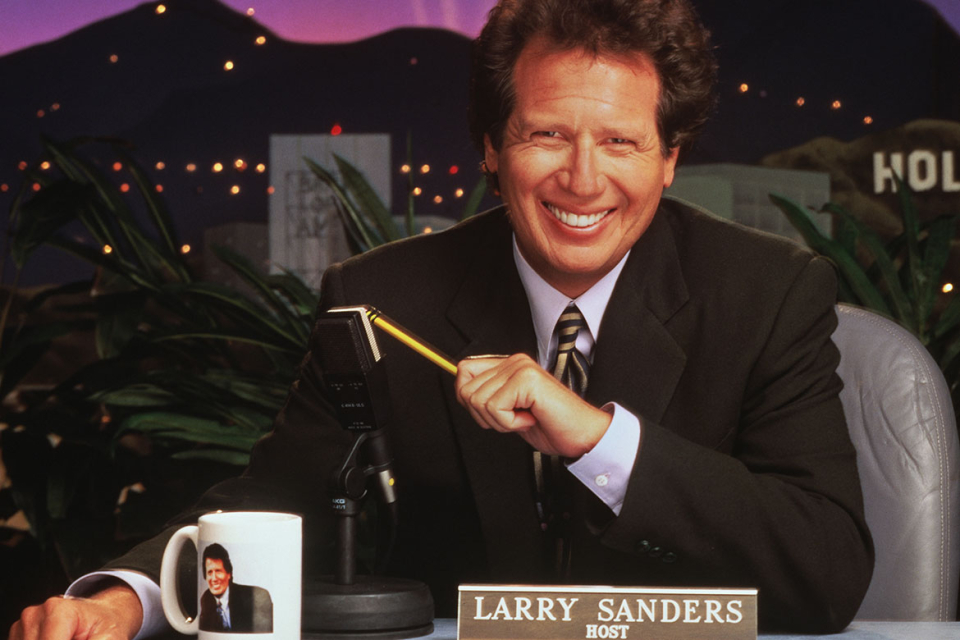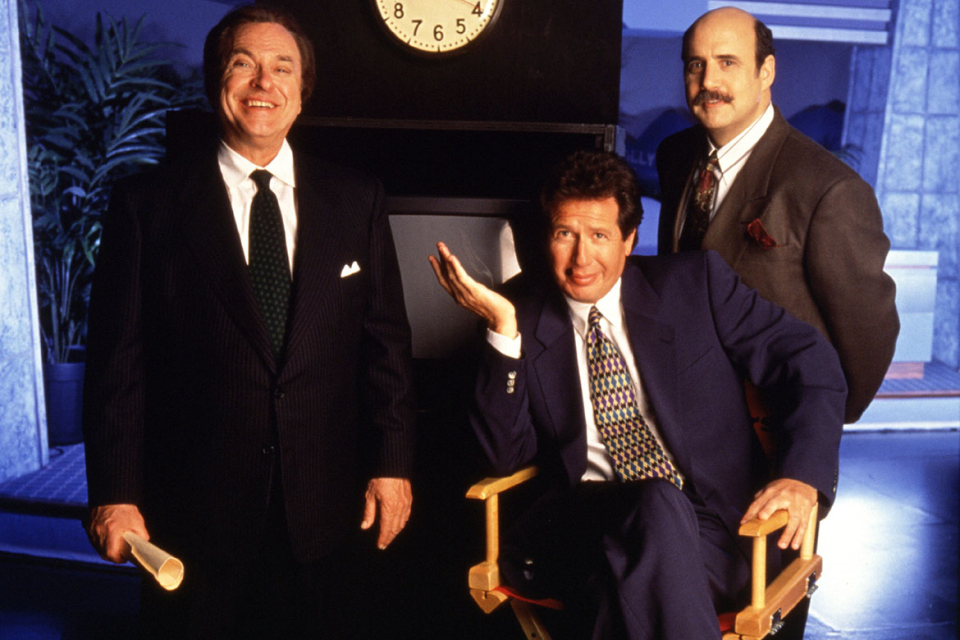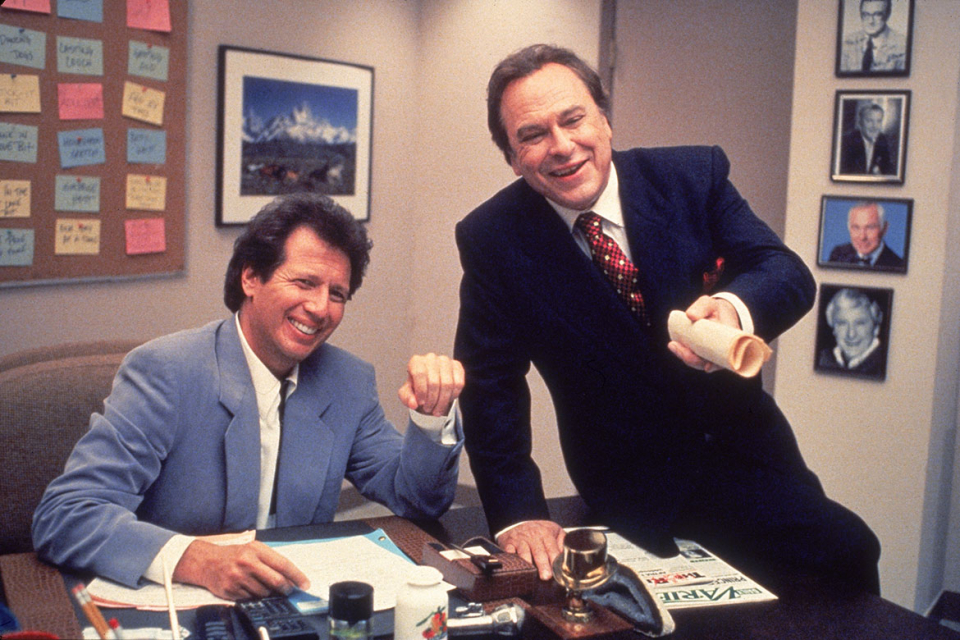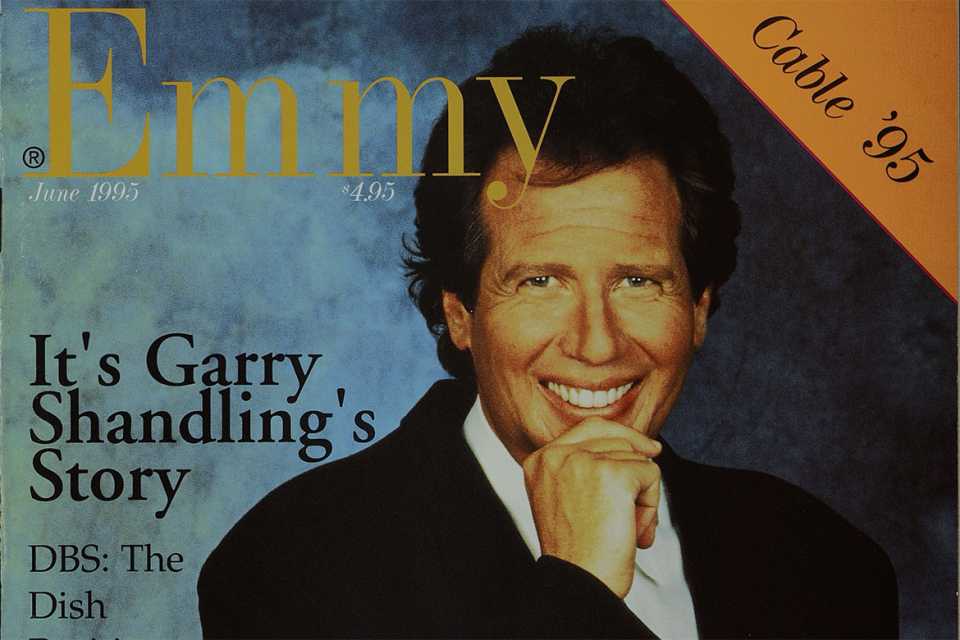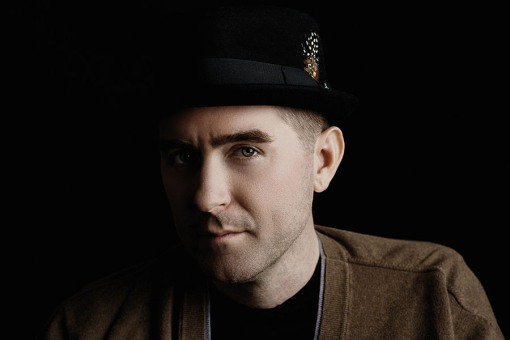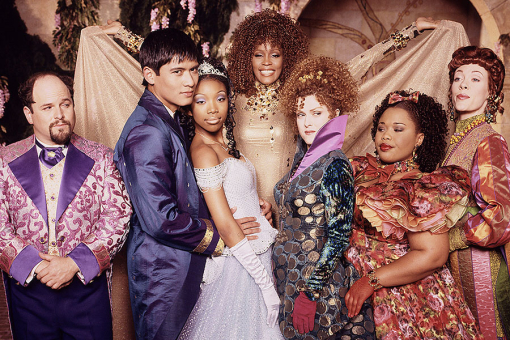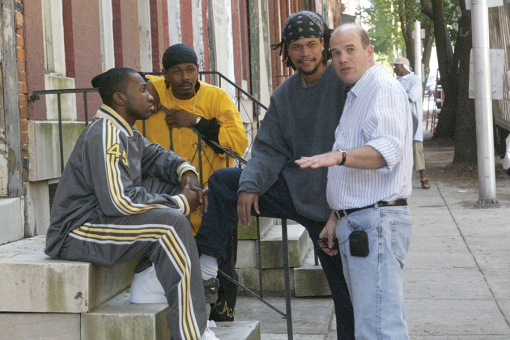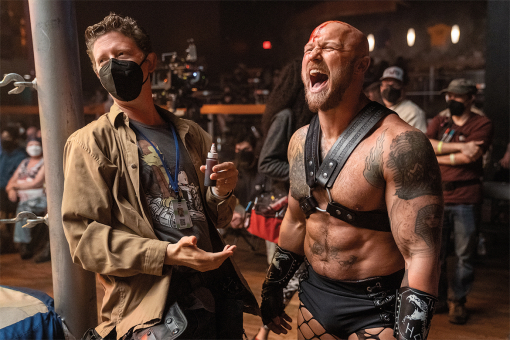As late-night talk show host Larry Sanders, comedian Garry Shandling skewered the talk show world that he came to know well as regular host of The Tonight Show Starring Johnny Carson.
Shandling had already garnered rave reviews from critics and audiences alike for his Showtime series, It's Garry Shandling's Show (1986–1990), where the actor played a neurotic standup who was aware he was on a sitcom. But it was his role as Larry Sanders that the comedian became known for — a version of himself who had taken the much-publicized real-life offer to host a late-night show.
The Larry Sanders Show — which was cocreated by Shandling and Dennis Klein — premiered on August 15, 1992, on HBO, and has maintained its cult status ever since. A cultural touchstone for comedy aficionados and TV creators everywhere, Sanders was a trailblazer. The use of single-camera filming for a comedy was not yet popularized, and the winking guest appearances from famous faces came ahead of its fellow HBO comedies Curb Your Enthusiasm and Entourage.
Sanders earned three Emmy Awards during its tenure: for directing, supporting actor (for Rip Torn, who played Sanders' producer Artie) and writing, the last of which was awarded to Peter Tolan and Shandling. (The main cast was rounded out by Jeffrey Tambor as Hank, Larry's sidekick.) Over the course of six seasons, Sanders earned fifty-three additional Emmy nominations and two Peabody Awards.
In this 1995 article from emmy magazine, the private star spoke about taking comedy seriously, how his shows were ahead of their time and whether he was like the characters he played.
It's Garry Shandling's interview. He's in control, opening some doors into the public rooms where he's comfortable, but slamming doors that lead to the living quarters of his life.
A colleague of his had accurately predicted, He won't let you in. Get too personal, and he'll draw back. But since so much of Shandling's personal life is his professional life, it's difficult to predict what he'll declare off-limits. It's not surprising that he won't discuss the apparent departure from his life and show of longtime girlfriend Linda Doucett.
But he even parries (with a joke) a question about the amount of money he was offered to replace (on NBC) or follow (on CBS) David Letterman, a multi-million-dollar amount that's also been well-publicized.
("I'd rather not discuss money. I feel awkward discussing money with my own accountant — and only because it makes me sick to think of how much I've passed on. It's not a philosophical issue.")
The truth is that when it comes to his career, money has never been a factor in Shandling's decision-making process. Perhaps that's why the career seemed blessed from its inception. Asked if he fits the stereotypical image of a comedian who's laughing on the outside but crying inside, he says no. "I think I'm crying outside."
He quickly adds, "I don't think you have to look far inside me to see the struggle of the joy-versus-pain conflict. I do think the funniest comedians and comedic actors are the ones who are struggling with their pain. These are the funniest people in general to me. People like Woody Allen, for instance, who is my favorite, is struggling with that. Certainly with me, I'm struggling to be happier with my life. And I think I do pretty well with it. But I do think it's a truism that the laughter on the outside is often hiding something."
Part of what Shandling's hiding is the pain of the death of an older brother at age thirteen of cystic fibrosis. "I'm sure that has influenced the seriousness with which I take life, because I realized that from age ten on that life's not a stable thing. I was depressed even at age ten and very stunned and shocked. I still don't remember all of it, and I think that has psychologically influenced me. I'm sure some of that pain came out in my humor."
Still he maintains, without revealing a lot of details, that his Tucson childhood was essentially happy "until the time I was supposed to start dating, which was puberty. When I got to college it was a struggle, because we were in the middle of the Vietnam War, and I really didn't have fun in college. But I think I was a happy child. My mother until this day insists I was always laughing and singing, which I can't imagine, since I can't sing a lick. I was probably less inhibited in those days."
Shandling, forty-five, believes nature was more important than nurture in his development as a comedian. "I think I learned to use my humor in the traditional way, as a way to be liked and a way not to get into fights. But I was funny from the time I was a little boy. For as long as I can remember, I was a comedian. So there's something very organic in that I was always interested in doing comedy and always being funny."
After college — at the University of Arizona, where he began as an engineering major but switched to marketing — Shandling moved to Los Angeles. He quickly found work writing sitcoms, earning credits for Welcome Back, Kotter and Sanford and Son, among other hits of the seventies.
But in the hospital after a serious auto mobile accident, he decided to pursue a career as a stand-up. He was an immediate hit, turning his singular lack of success on the dating scene into a hilarious send up of the seventies (then eighties and now nineties) singles scene. Lines like the one about the mirror he installed over his bed that reads, Objects in mirror are larger than they appear, endeared him to a legion of fans and earned him enough bookings so that he soon was able to leave sitcom writing behind.
He became a regular on The Tonight Show and, when Joan Rivers left for her own talk show on Fox, was named regular guest host and unofficial heir apparent to Johnny Carson. His Showtime specials, Garry Shandling Alone in Las Vegas (1984) and The Garry Shandling Show 25th Anniversary Special (1986) were hits. Everything seemed to be going his way.
Shandling went to NBC and proposed a comedy series about, well, Garry Shandling. It's Garry Shandling's Show was about a single stand-up comedian who had a platonic girlfriend and a best friend who lived next door, and if there'd been a George Costanza, the similarities would be overwhelming. Shandling, however, doesn't see the resemblance to Seinfeld. "I think [my show] was more a precursor to the 700 Club."
NBC wasn't interested, Shandling says. At the time, it didn't feel the public was ready for a show about a comedian, ignoring the fact that the public had been ready decades earlier for sitcoms featuring Desi Arnaz and Danny Thomas as entertainers. The network also didn't like the idea of Shandling talking to the screen, as George Burns had done for years. Finally, it also wanted Shandling to have children.
Showtime, on the other hand, was pleased to allow Shandling to do what he wanted to do. "So rather than keep adjusting it and forcing it into some mold I didn't want it to be, I just decided to do it at Showtime. It had nothing to do with network versus cable or anything. It's whoever will allow that creative freedom to exist — that's what I based my choices on."
"Another way of looking at it is, What other choices are there to make? I can't do something I can't do. It's simple in some ways. It's like taking a sprinter and asking him to run a marathon. He can say, 'That's not what I do.' But they say, 'We need a marathoner,' so you start running a marathon. And now someone says, 'We want you to sprint.'"
"My analogies are always horrible, and I'm always embarrassed by everything I say. I always miss the point I'm trying to make, and I'm left alone apologizing."
He pauses, perhaps looking for a way out, and then continues. "My analogies are like the ocean. They come in waves. Usually a moderate amount of sewage is involved."
Shandling doesn't waste time wondering what might have been if NBC had bought It's Garry Shandling's Show. "I honestly feel it's impossible to tell. Perhaps if the show had been on a [broadcast] network, the ratings would have been poor. I would have been canceled, and I never would have gotten to do four years."
"I do believe the networks nowadays are more open to newer kinds of programming than they were in the mid-eighties."
I think cable has forced everyone to look at their programming. It's Garry Shandling's Show aired from 1986 through 1990, until Shandling either burned out or got bored. It was at about this time that the late-night talk-show wars started heating up. Johnny Carson announced his retirement. David Letterman and Jay Leno were the likely successors.
Shandling was approached to take over the time spots currently occupied by Tom Snyder and Conan O'Brien as well as start the syndicated talk show that briefly became The Dennis Miller Show. Published reports say Shandling was receiving offers of as much as $5 million a year for his services — money and exposure some people would have killed for.
"I think about it in those terms, actually, Shandling says. But, he adds, "I didn't want to go on to do just another talk show. It's never been what I like to do. I wanted to do something new and unique, at least to me, and I didn't think I was ready to bring something unique to the talk-show world."
"Number two, I believe it was a three-year commitment. It would prevent me from exploring any other acting or writing opportunities. While it would be a wonderful career and probably a moderate amount of fun, I wasn't ready to limit myself and say this is what I want to do and who I am for the next three years."
He also admits a certain amount of fear was involved — fear that he wouldn't be able to sustain the quality over a daily, three-year grind; fear of failure; fear of biting off more than he could chew.
What he decided instead was to become Larry Sanders, star of his own fictional talk show, on HBO, a much smaller stage should he fail and a situation "as comfortable as it could be for me." Part cinema vérité, part cinema satire, The Larry Sanders Show — with Shandling as creator, writer, and executive producer as well as star — is one of the most critically acclaimed series on television. HBO head Michael Fuchs calls it as "good a half hour as anything on television today." While it doesn't score heavily in the ratings — "it's a little too hip for the room," Fuchs says — it still is a cornerstone of the HBO product line. Returning for its fourth season this July, it generates publicity and buzz far beyond its small share of the television audience.
The show came about because of fortuitous timing. "Michael [Fuchs] had the perception that the public was going to be consumed by the talk-show wars after Johnny left, and he was right for the most part," Shandling says. The two had a conversation that went something like this:
MICHAEL: I'd love to do a show about talk shows.
GARRY: I've had that idea, too.
In one phone conversation, Shandling says, they pretty much locked down all of the details.
"I'm not the kind of person who would then start shopping it around, like a man who dates too many women," the comedian says. "I don't do either."
On further reflection, however, he decides he'd consider the latter "if more women would allow me to do the kind of project I want with them."
Any conversation with Shandling about his shows inevitably leads to the question of whether he is indeed the character he portrays. While he says he understands the question — "I think that's something I ask myself when I'm acting" — he resents it, too.
Occasionally, some people are very confused. They think Larry is me and think I'm not acting, which is an oversight. I don't know what the thought process is. But I've had some people say to me, 'I've never seen you act.' I ask, 'Haven't you seen the show?' and they say, 'Yes, but that's just you.' I find that frustrating, because I work with a coach every week and work very hard. Larry is a different person, and definite choices are made."
Yet the similarities among the three — Garry and Larry, the series characters, and Garry, the creator, seem to be greater than their differences. Colleagues who've described Garry the Creator as neurotic, self-loathing, and insecure would use the same adjectives in describing his fictional creations.
Of course, in the end, it doesn't make much of a difference. Shandling has gathered a splendid ensemble cast (including Rip Torn as the producer, Artie, and Jeffrey Tambor as sidekick Hank) and willingly shares the spotlight with them (something Larry Sanders would never do).
Shandling needs two more seasons' worth of episodes to have enough for syndication, so he'll probably be around for that long. But for how long after that? "I don't have the answer to that yet. I'm not quick to let it go. It's still good and it challenges me."
Still, he says, "You need to grow." He's made several brief forays into film, most notably, a small role in the Warren Beatty-Annette Benning remake of An Affair to Remember, last summer's Love Affair.
He's also working on a movie script about an alien, which he doesn't want to talk too much about. "I think it's funny, and hopefully it takes a look at our world and the way we live from a pretty distant perspective. That's kind of how I feel, anyway, so it's kind of autobiographical."
But if that doesn't work out, there is a fallback position: "I believe I was put on the planet to be on cable television. I believe cable television is my calling. I believe that I will never fully retire and never really die. I'll just go on to higher-numbered channels."
This article originally appeared in emmy magazine issue #3, 1995, under the title, "The Open-and-Shut Life of Garry Shandling."

